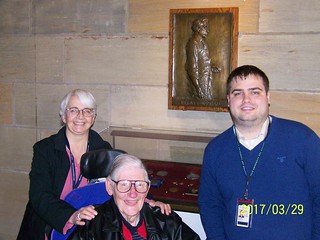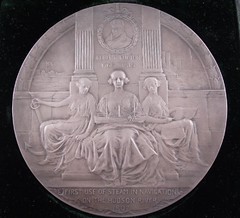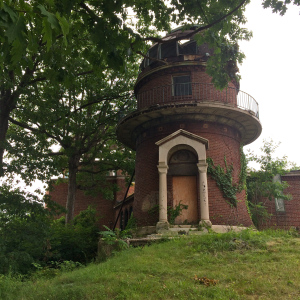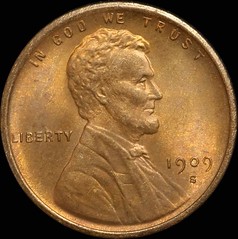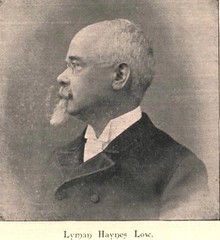
PREV ARTICLE
NEXT ARTICLE
FULL ISSUE
PREV FULL ISSUE
NOTES FROM E-SYLUM READERS: APRIL 9, 2017
I must say thank you to Dick Johnson, for inspiring me to sell that plaque to Yale. It looks a lot more appropriate on exhibit there. Indeed. Big art needs big walls. -Editor
To read the earlier E-Sylum article, see:
Greetings from Indonesia
Thanks for all your interesting news every week!
Are the Off-Color Palestinian Notes Samples?
 Jonathan Callaway writes: I started receiving your weekly email some time ago and although I am UK based and a paper money rather than coin enthusiast I find something of interest in most of them. I look forward to continuing to receive The E-Sylum. In the press release on the Palestinian colour trials in the DNW sale, I wish to correct one point: it is correct to say that colour trials come before production starts, allowing the issuer to decide on the preferred colour before the note enters circulation. However, there are other reasons for notes to be prepared in non standard colours and one of these applies in this case – these notes were prepared for commercial purposes by Thomas De La Rue to go in specimen books carried by their sales teams, essentially for advertising purposes. These books contained a selection of notes in non standard colours to ensure they were not misused and of course all were annotated SPECIMEN OF NO VALUE. So they were produced after and not before the notes in the correct colours had entered circulation. Thank you for your observation. I'm not a world paper money collector and rely on our readers for their expertise. Is there any significance to the numbering of the item as
"Specimen No. 9"? Are sales samples generally numbered in that way? -Editor
Jonathan adds: The numbers on specimen and colour trials like this are simply control numbers used by De La Rue. I have seen them run to well over 200 but as mentioned before the notes were used for various purposes not just in specimen books for advertising / sales purposes. To read the earlier E-Sylum article, see:
On the Washington Market Chowder Club Medal
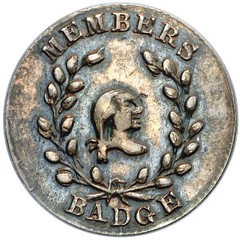 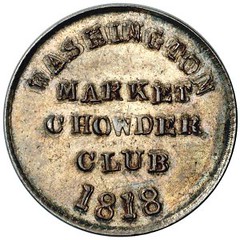 Regarding last week's item mentioning the Washington Chowder Club medal, Roger Siboni writes: Once again...amazing! I own one of the very few Washington Chowder Club Medals and have debated its origin with many. What a fabulous bit of information. Musante thinks it was made by Charles Wright at the beginning of his career because a few stylistic things and he started his work in that same district. I have a new project to work on. What a great find! Thanks so much for what you do! I'm glad this was useful. I just stumbled across it literally while looking for other stuff. I forget the details, but think it popped up in a Google image search. Even a blind
pig finds an acorn once in a while, but it has to be out there sniffing. -Editor
To read the earlier E-Sylum article, see:
The Power of Numismatic Nuggets
Glad to help! -Editor
To read the earlier E-Sylum article, see:
Assay Commission Member Ambrose Swasey
I was reading a website entry about astronomical observatories, and I saw mention of Ambrose Swasey. I immediately recognized his name as a person who had obtained two matte proof, low-relief 1922 Peace Dollars directly from George Morgan when struck. Swasey had been a member of the 1922 Assay Commission, providing him to opportunity to obtain the very precious dollars. These coins appeared as lots 3932 and 3933 in the Bowers & Merena catalog of the Norweb Collection, Part III, 1988, and a photo of Swasey is on page 377 of that catalog.
Thanks. One never knows where a numismatic thread might lead. -Editor
For more information, see:
The New Netherlands Coin Company
New Netherlands coin company was owned by the Wormser family. John Ford worked there. To read the earlier E-Sylum article, see:
Notes From Dennis Forgue
Two things on the March 26, 2017 issue. The Dexter 1804 Dollar posters article was interesting, as the auctioneer in the 1989 sale I was given poster #990 by Mark representing the record price the dollar brought. Also, in regards to artist Frank Lapa, I remember him painting in his show room on Madison street in Chicago in the early 1960's. He had the most modern showroom around. He was very knowledgeable and had a very mercurial temper. When you went in you did not know whether he would make you a great deal on anything you were interested in or scream at you to get out. Thanks. Sorry for my delay in publishing this. Lapa sounds like a really interesting but creepy guy. -Editor
To read the earlier E-Sylum articles, see:
Counterfeit Confederate ID Disc
This week I sent researcher Peter Bertram a link to a "Confederate Medal" being offered in an online auction. Peter replied that it was "a decorative type item based on the Confederate Great Seal and follows the merchandise mentioned in my book pg 111, last paragraph of text". He added that he looked through the rest of the auction and found a counterfeit Confederate ID Disc - one of those he describes in the last section of his book "Confederate Numismatica, Part 1". Peter wrote that he emailed and called them about it and now reports that it's no longer in the auction and concludes "kudos to http://www.invaluable.com/auction-lot/-1-c-BA64847B98 for doing the right thing!" Peter's book is available on his website at www.ConfederateNumismatica.com . -Editor More on Collecting By Mint Marks
Thanks for reposting Len Augsburger's E-Gobrecht review of Mint Marks by A. G. Heaton. I have an edition reprinted by Bowers and Merena Galleries in 1987. It was a run of 2000. In his Introduction, Q. David Bowers covers many of the same facts as Len. However, Bowers identifies the 1909-S VDB cent as the impetus for our passion for Mint marks.
Thanks. I think there's truth to both explanations of the jump in interest in collecting by mint marks. The Heaton book got the attention of serious collectors and dealers, and the 1909-S cents got the attention of the general public. Once both elements were in place, there was no going back to the days when mint marks were not seen as important. -Editor William Friesner
Dave Hirt of Frederick, MD submitted this note on collector and early American Numismatic Association member William Friesner. Thanks. -Editor
In the review of A. G. Heaton's book on branch mint coins, It mentions the Frossard sale of the Wm. Friesner collection. Professor Friesner was the superintendent of public schools of Los Angeles, and an early ANA member. Unfortunately he was stricken with tuberculosis, for which at that time there was no cure. It took his life at age 43. He wrote to Dr. Heath in a matter of fact way that one lung is two thirds, and the other one third gone. Dr Heath paid him tribute by writing, "History tells of martyrs for country, for religion, but none ever went to the lions, to the stake, or the battlefield with greater fortitude than he, who with mental faculties acute, calmly sits down with death and bids the grim tyrant he can no longer defy to sup with him." Thanks, Dave. A sad end. People today don't realize how bad the good old days really were. Life expectancy ain't what it used to be, and that's a good thing.
-Editor
To read the earlier E-Sylum article, see:
More On Lyman Low
Interesting tidbit. Thanks! -Editor
To read the earlier E-Sylum article, see:
The National Bibliomania Society
Today (April 4) I received my copy of the April issue of The Numismatist. On page 76 I noticed an obituary for Dr. Thomas Fitzgerald. Among club membership listed, he was a member of the "National Bibliomania Society." Hmmm. I checked with Secretary/Treasurer Terry White of our group, the Numismatic Bibliomania Socety, and he reports that Fitzgerald's membership expired in December 2015.
-Editor
Pete adds: Perhaps after his membership in the Numismatic Bibliomania Society expired, he maintained his membership in the National Bibliomania Society. Beauty and the Beast
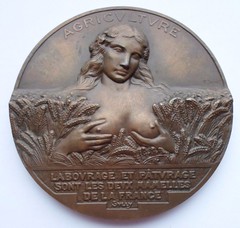 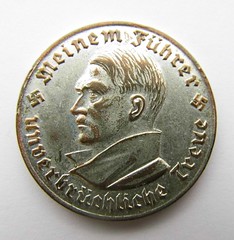 Eric Hodge writes: Thank you again for another thought provoking numismatic weekly nugget. I am in France at the moment, where the film getting all good reviews is Beauty and the Beast. You could not have encapsulated the idea better than with the two medals displayed. First the French Agricultural Medal - what can one say, and second the 1934 NSDAP Hall of Honour Medal. Which is which? To read the earlier E-Sylum article, see:
On the Paris Mint's French Agriculture Medal
 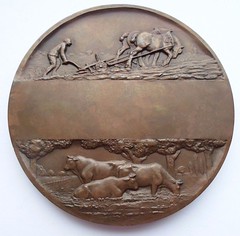 Regarding the French Agriculture medal pictured in last week's Numismatic Nuggets article, Dick Johnson writes: “Obverse: bust of nude woman figuring Agriculture.” What was the name of the other one? Funny you should ask. Serge Pelletier of Canada writes: I thought some of the E-Sylum readers may be interested in the text of the obverse: Ploughing and Grazing are the two teats of France. That explains a lot - now the medal makes a lot more sense. This wasn't what I had in mind when I named the articles "Numismatic Nuggets", but what the heck. Let's just keep the discussion PG-13. The medal sold for $250. Did one of you pervs out there buy it? -Editor To read the earlier E-Sylum article, see:
THE BOOK BAZARREWayne Homren, Editor The Numismatic Bibliomania Society is a non-profit organization promoting numismatic literature. See our web site at coinbooks.org. To submit items for publication in The E-Sylum, write to the Editor at this address: whomren@gmail.com To subscribe go to: https://my.binhost.com/lists/listinfo/esylum All Rights Reserved. NBS Home Page Contact the NBS webmaster 
|
